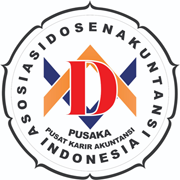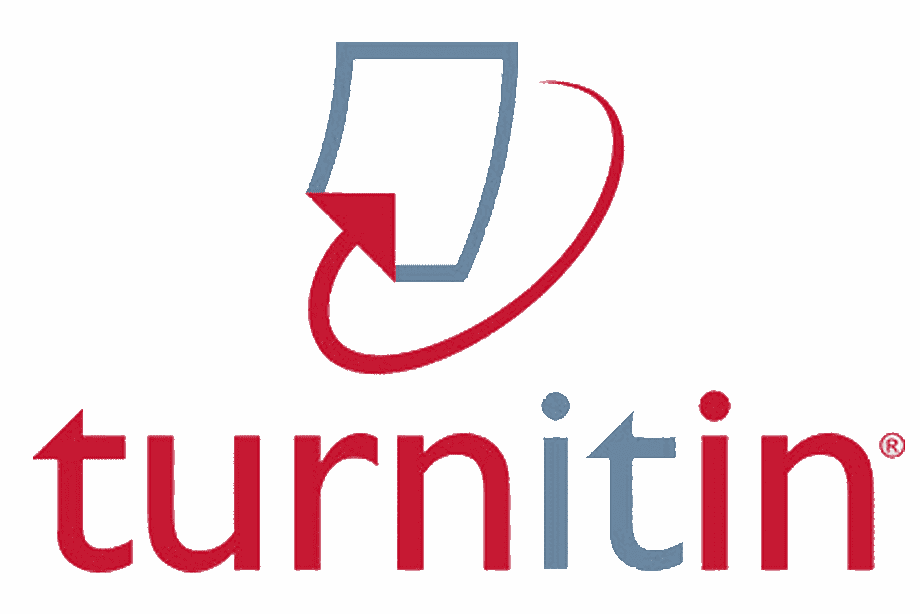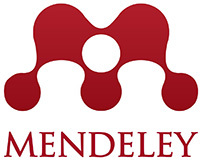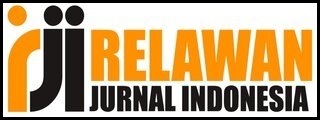The Effect of Macroeconomic Indicators, Crude Oil Prices, and the Dow Jones Index on the Jakarta Composite Index
Keywords:
Jakarta Composite Index (JCI), Macroeconomic Factors, Crfude Oli Price, DJIAAbstract
This research aims to analyze the influence of macroeconomic factors, such as Exchange Rate, BI Rate, Inflation, Gross Domestic Product, Crude Oil Price, and Dow Jones Industrial Average Index (DJIA) on the Jakarta Composite Index (JCI) for the 2014-2018 period. The analytical method used is the Error Correction Model (ECM) with a significant level of 5% with E-views 10 software. The results of partial research show that in the short and long term, the Exchange Rate and Oil Price significantly negatively affect the JCI and BI Rate in the short term and have a significant negative relationship with the JCI, inflation, and Gross Domestic Product a negative and insignificant relationship with the JCI and the Dow Jones Index in the short and long term has a significant positive relationship with the JCI. The simultaneous research results show that the Exchange Rate, BI Rate, Inflation, Gross Domestic Product, Oil Price, and the DJIA simultaneously significantly influence the dependent variable, namely JCI. According to the Islamic review, activities related to Exchange Rate, BI Rate, Inflation, GDP, Crude Oil Prices, the Dow Jones Index, and the JCI are allowed. However, they must comply with Islamic law and regulations.
References
Bodie, Z., Kane, A., & Marcus, A. J. (2014). Investments (10th ed.). McGraw Hill Education.
Febriawan, M., & Santosa, P. W. (2018). Return saham dan faktor fundamental pada pra-krisis ekonomi global 2008 di Bursa Efek Indonesia. Journal Ekonomi Dan Bisnis, 2(2), 232–248. https://doi.org/https://doi.org/10.33476/jeba.v2i2.484
Gumilang, R. C., Hidayat, R. R., Endang, M. G. (2014). Pengaruh Variabel Makro Ekonomi, Harga Emas dan Harga Minyak Dunia Terhadap Indeks Harga Saham Gabungan. Jurnal Administrasi Bisnis. 14(2), 1-9.
Harsono, A. R, & Worokinasih, S. (2018). Pengaruh Inflasi, Suku Bunga, dan Nilai Tukar Rupiah Terhadap Indeks Harga Saham Gabungan. Jurnal Administrasi Bisnis. 60(2), 102-110.
Hossein, S, M., Ahmad, Z., & Lai, Y. W. (2011). The Role of Macroeconomic Variables on Stock Market Index in China and India. International Journal of Economics and Finance. 3(6), 233-243.
Husnul, H. M., Hidayat, R. R., & Suliasmiyati, S. (2017). Analisis Pengaruh Inflasi, Kurs (IDR/USD), Produk Domestik Bruto dan Harga Emas Dunia Terhadap Indeks Harga Saham Gabungan (Studi Pada Indonesia Periode 2008-2016). Jurnal Administrasi Bisnis. 53(1), 66-74.
Jones, C. P. (2014). Investments: Principles and Concepts (12th ed.). Wiley & Sons Inc.
Joslin, S., & Konchitchki, Y. (2018). Interest rate volatility, the yield curve, and the macroeconomy. Journal of Financial Economics, 128(2), 344–362. https://doi.org/10.1016/j.jfineco.2017.12.004
Khan, M. K., Teng, J. Z., & Khan, M. I. (2019). Asymmetric impact of oil prices on stock returns in Shanghai stock exchange: Evidence from asymmetric ARDL model. PLoS ONE, 14(6), 1–14. https://doi.org/10.1371/journal.pone.0218289
Kusuma, I. P. M. E., & Badjra, I. B. (2016). Pengaruh Inflasi, Jub, Nilai Kurs Dollar dan Pertumbuhan GDP terhadap JCI di Bursa Efek Indonesia. Jurnal Manajemen. 5(3), 1829-1858.
Listriono, K., & Nuraina, E. (2015). Peranan Inflasi, Bi Rate, Kurs Dollar (USD/IDR) Dalam Mempengaruhi Indeks Harga Saham Gabungan. Jurnal Dinamika Manajemen. 6(1), 73-83.
Khan, M. K., Teng, J. Z., & Khan, M. I. (2019). Asymmetric impact of oil prices on stock returns in Shanghai stock exchange: Evidence from asymmetric ARDL model. PLoS ONE, 14(6), 1–14. https://doi.org/10.1371/journal.pone.0218289
Maurina, Y. R., Hidayat, R., & Sulasmiyati, S. (2015). Pengaruh Tingkat Inflasi, Kurs Rupiah dan Tingkat Suku Bunga BI Rate Terhadap JCI (Studi Pada Bursa Efek Indonesia Periode 2010-2014). Jurnal Administrasi Bisnis. 27(2), 1-7.
Mishkin, F. S., & Eakins, S. G. (2012). Financial Market and Institutions (Seventh). Prentice-Hall.
Nofiatin, I. (2013). Hubungan Inflasi, Suku Bunga, Produk Domestik Bruto, Nilai Tukar, Jumlah Uang Beredar, dan Jakarta Composite Index (JCI) Periode 2005–2011. Jurnal Aplikasi Manajemen. 11(2), 215–222.
O’Hara, M. (2009). Market Microstructure Theory. In The Journal of Finance (Third). Blackwell Publishing Inc. https://doi.org/10.2307/2329383
Santosa, P. W. (2019). Financial performance, exchange rate and stock return: Evidence from manufacturing sector. Jurnal Manajemen Teknologi, 18(3), 205–217. https://doi.org/10.12695/jmt.2019.18.3.5
Santosa, P. W., & Huda, N. (2020). Studi efisiensi pasar modal syariah Indonesia: Over-reaksi atau momentum? DeReMa: Jurnal Manajemen, 15(2), 140–152. https://ojs.uph.edu/index.php/DJM/article/view/2317/pdf
Santosa, P. W., & Puspitasari, N. (2019). Corporate Fundamentals, Bi Rate and Systematic Risk: Evidence From Indonesia Stock Exchange. Jurnal Manajemen, 23(1), 40–53. https://doi.org/10.24912/jm.v23i1.443
Santosa, P. W., & Santoso, P. W. (2019). Does Exchange Rate Volatility cause Overreaction in the Capital Market? Evidence from Indonesia. International Journal of Finance and Accounting, 8(3), 80–87. https://doi.org/10.5923/j.ijfa.20190803.02
Sihombing, P., Siregar, H., Manurung, A., & Santosa, P. W. (2014). Determinants of the Indonesia government yield curve. International Journal of Information Technology and Business Management, 25(1), 22–35. https://www.jitbm.com/jitbmvolume25/
Sunardi, Nardi, dan Laila Nurmillah Rabiul Ula. 2017. Pengaruh BI Rate, Inflasi, dan Kurs Terhadap Jakarta Composite Index (JCI). Jurnal Sekuritas. Volume 1. Nomer 2. Hal. 27-41.
Wahyudi, R. N., Asdar, M., & Nohong, M. (2017). The Influence Of Macroeconomic Variables Toward Jakarta Composite Index On Indonesia Stock Exchange. Jurnal Bisnis, Manajemen, dan Informatika. 14(2), 131-148.
Wijayaningsih, R., Rahayu, S. M., & Saifi, M. (2016). Pengaruh BI Rate, Fed Rate, Dan Kurs Rupiah Terhadap Jakarta Composite Index (JCI) (Studi pada Bursa Efek Indonesia Periode 2008-2015). Jurnal Administrasi Bisnis. 33(2), 69-75.
Yulianti, M. T., & Purwohandoko. (2019). Pengaruh Variabel Makroekonomi, Harga Komoditas & Indeks Saham Global Terhadap JCI Periode 2014-2018. Jurnl Ilmu Manajemen. 7(3), 629-641.
Downloads
Published
How to Cite
Issue
Section
License
Copyright (c) 2023 Jurnal Orientasi Bisnis dan Entrepreneurship (JOBS)

This work is licensed under a Creative Commons Attribution-ShareAlike 4.0 International License.

This work is licensed under a CC Attribution-ShareAlike 4.0

 Perdana Wahyu Santosa
Perdana Wahyu Santosa
 Program Master of Management, Universitas YARSI, Jakarta
Program Master of Management, Universitas YARSI, Jakarta










